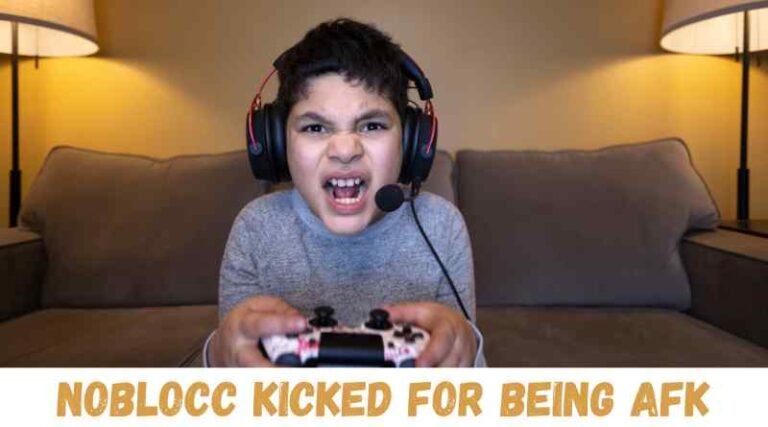In the ever-evolving landscape of online gaming, the balance between competitive fairness and player convenience continues to challenge game developers and communities alike. A notable instance illustrating this challenge is the recent episode involving a player known as Noblocc. The incident where Noblocc was kicked for being AFK (Away From Keyboard) has sparked a broader discussion about the policies governing player inactivity and their implications on the gaming experience. This article aims to dissect the circumstances leading to such decisions and explore the broader ramifications for the gaming community.
The Incident Unfolded
Noblocc, a well-regarded player in the online gaming scene, was recently subject to automatic disconnection after being marked as AFK during a crucial competitive match. This action was not due to any deliberate intention on Noblocc’s part but rather a confluence of unforeseeable circumstances that led to his temporary inactivity. The game’s system, designed to promote fairness and reduce the impact of inactive players on team performance, automatically removed Noblocc from play after a pre-set period of inactivity was detected.
Underlying System Mechanics
To understand the fairness and necessity of AFK policies, it’s crucial to delve into the mechanics of these systems. Generally, online games have protocols to detect when a player has not made any input for a certain period. These mechanisms are essential in competitive settings, where every player’s active participation is crucial to the integrity of the game. The AFK detection system typically operates on a timer, kicking players who fail to respond within the stipulated timeframe to prevent potential exploitation of the game’s mechanics.
The Impact on Team Dynamics
The immediate effect of being kicked for AFK is not just on the individual player but also on their teammates. In team-based games, the sudden absence of a player can severely disadvantage the team, potentially altering the outcome of the match. This raises questions about the balance between penalizing inactivity and ensuring competitive fairness. In Noblocc’s case, his team found themselves unexpectedly short-handed, leading to frustration and a compromised game strategy.
Community Response and Sentiment
The reaction from the gaming community to incidents like Noblocc’s disconnection has been mixed. Some players advocate for strict AFK penalties to discourage players from abandoning games or remaining inactive, which they believe undermines the competitive nature of gaming. Others argue for more lenient approaches, suggesting that penalties should vary based on the context of the player’s inactivity—distinguishing between those who are deliberately idle and those, like Noblocc, who may have been forced away from their keyboard by unforeseen circumstances.
The Debate Over Policy Adjustments
This incident has sparked a debate over whether current AFK policies are too rigid and if they need to be more adaptive to the context of each situation. Discussions in various forums suggest that while the intent behind such policies is clear, their implementation often lacks the flexibility needed to accommodate innocent discrepancies in player behavior. Proposals for improvement include the introduction of a warning system, allowing players a chance to respond before being kicked, or a tiered penalty system that considers the frequency and duration of a player’s inactivity.
Technological and Human Solutions
From a technological standpoint, enhancing AFK detection systems to include context-aware algorithms could be a way forward. These systems would analyze not just the duration of inactivity but also the player’s patterns and behaviors in previous games to determine whether the inactivity is likely intentional or accidental. On the human side, there could be an escalation path involving human oversight for disconnection decisions in competitive matches, especially in cases where stakes are high.
Conclusion
The incident of Noblocc being kicked for being AFK highlights an ongoing dilemma in the realm of online gaming: balancing automated systems designed to maintain game integrity with the need for a fair and reasonable assessment of player behavior. As online gaming continues to grow and evolve, so too must the mechanisms that govern it, ensuring that they are fair, sophisticated, and, most importantly, attuned to the nuances of human behavior. The resolution of this issue will not only improve the gaming experience for all players but will also shape the future of competitive online gaming policies.
Also Read Related Posts: Understanding the Benefits of Computer Telephony Integration for Businesses

